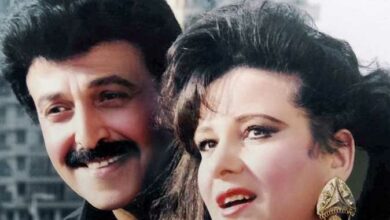The simple reason the show is wildly successful in Egypt is that it resonates with people, it makes them care. This is the crucial ingredient for any good story. Hanif Kureishi, a renowned English novelist and playwright, believes that it is the story that really matters, that people will read a book not because it is well written but to find out what happens next.
“Heba” did what any good story should do. It made people care. The plot is simple, a homely heroine, Heba, the girl next door who is forced to struggle through life relying merely on merit rather than looks. She inevitably falls in love with her tall, dark and handsome boss, Mr. Adham, who doesn’t see her as anything but a means to save his company. Played by the gifted actress Emi Samir Ghanem, Heba and her colleagues at work, (“the losers”), represent the majority of hardworking Egyptian women, thus striking a chord with many women. Other dynamic characters like Hadi the fashion designer, and Perihan, the blonde avaricious bimbo, have also become household names, because of the ingenuity of the screenwriters, and the talent of the actors, turning them into charismatic, fascinating and irresistible characters viewers loved to watch.
Heba’s ultimate success in climbing the corporate ladder from an executive secretary (in spite of her high qualifications) to an Assistant Manager provides a beacon of hope for the millions of Egyptian women (and even men), who in reality rarely make it to the top (90% of the unemployed are youth, the situation being particularly tough for young women, according to the Population Reference Bureau report in 2011). Amidst a collective sense of frustration and stilted dreams among the young, it is this hope, this potential for success, that makes the show a hit.
The larger socio-political Egyptian scene played a major role in the success of the show. People are fed up of politics and politicians. Die-hard political talk-shows have started to diversify, in an attempt to capture the viewership of an increasingly drifting audience. People want to de-stress and see something different. Something simple, heart-warming, and engaging, and just plain old-fashioned fun. Something they could lose themselves in, knowing that the plot won’t hold any nasty surprises. Something that creates a little magic, a parallel reality where the drudgery of every-day life is banished. As Mark Tempest, star of the hit show “The Virtual Magician” puts it: “Art is a deception that creates real emotions — a lie that creates a truth. And when you give yourself over to that deception, it becomes magic.”
In this climate, Heba Regl El-Ghorab, is a welcome breath of fresh air. In spite of the criticism levelled at the show for seemingly normalising extra marital relations and drinking (both strict taboos for the majority of Egypt’s conservative middle class), the show has become a phenomenal success. This is a first for such a long show (Egyptian series aren’t usually longer than 35 episodes). Admittedly the second part of the first season has dragged on more than the first, and could have become a little tedious, but it hasn’t detracted from the overwhelming success of the show. People simply want to watch a good story, with little complications, zero stress, and one that they could either see or lose themselves in. “After nourishment, shelter, and companionship, stories are the thing we need most in the world” (Philip Pullman, British novelist).




